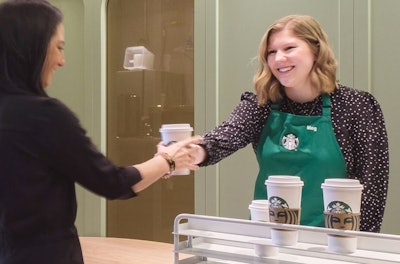
Impossible Foods CEO Patrick Brown recently made the bold statement to CNBC “Mad Money” host Jim Cramer that his company’s vision is to have plant-based protein products “completely replace the animal-based products in the food world within the next 15 years."
The cynic in me wants to sarcastically respond, “Yeah, good luck with that, pal.”
He went on to say, “the transformation is inevitable.”
Brown was certainly in a celebratory mood during the time of that interview, as the company had just announced the launch of its Impossible Breakfast Sandwich at Starbucks. With more than 15,200 locations in the United States, that is a big deal for Impossible Foods, which has already gained a presence on the menus at Burger King and White Castle.
Starbucks deal overrated
While we should take the competition from Impossible Foods and similar companies seriously, the deal with Starbucks is hardly a cause to think that plant-based proteins will replace animal-based protein.
Yes, Starbucks is a trendy place and popular with young urban crowds, I think Brown is over-stressing its importance.
It’s been probably four years since I’ve purchased anything from Starbucks, and that was only because I was in a hurry and that was what was close. Even though there is a Starbucks in the nearby city where my family does a big chunk of its shopping, I’ve never been in that particular location. In fact, it’s not even my radar. If I’m there at breakfast time, there are places I’d much rather go.
My attitude toward Starbucks is similar to that of financial guru Dave Ramsey, who calls the place “Fivebucks,” because that’s how much you pay for a mediocre cup of coffee when you can brew your own pot of Maxwell House for pennies on the dollar. With the economy in a major slump because of the COVID-19 pandemic, are people still patronizing Starbucks? And how long will it be the hip place to go?
One other thing about this Impossible Breakfast Sandwich that makes me scratch my head is its ingredients. Yes, it does feature a plant-based sausage patty, but it also features a fried egg patty and a slice of sharp cheddar cheese. Not plant-based eggs and cheese, but eggs laid by hens and cheese from dairy cattle. Not exactly a plant-based product is it? So how is that replacing animal products?
Realities of replacing animal protein
I have no doubts that the plant-based protein products will continue to grow and grab a bigger share of the protein market, but I believe it is preposterous to think they will completely replace animal products.
First of all, people still like meat, poultry, dairy and eggs. That won’t change. People will still want to support their local economies and farmers. Traditionalists will still shun the plant-based products and will still have that mindset like those Oklahoma Beef Council car tags say, “Eat Beef: The West Wasn’t’ Won on Salad.” Also, how do you ceremoniously carve a plant-based turkey on Thanksgiving?
Then, there is the simple supply issue. With a growing population, there is only so much land that is suitable for crop production. Even in the Central Plains, there is land on which you couldn’t (or shouldn’t) drive a tractor pulling a grain drill. But it still has good grazing potential. That’s even more the case in the mountainous regions of the U.S. and Canada.
I’m glad Brown is being honest and up-front concerning what his company’s ambitions are, but maybe he should have a more realistic mission.


















